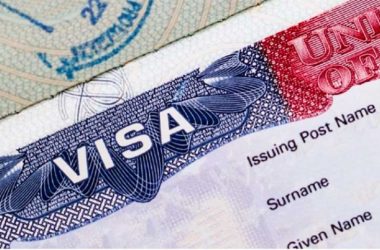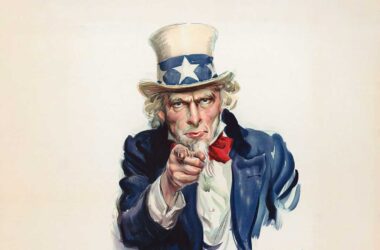
A big factor has got very little attention from Taiwan since 12 of its allies signed a joint anti-China statement at the United Nations (UN) on August 23, accusing Beijing of being solely responsible for the tense situation in the Taiwan Strait: two important friends didn’t sign-up.
Honduras and the Holy See (The Vatican) didn’t join the diplomatic chorus, a silent act that spoke loudly about their unwillingness to help throw fuel on flames.
Not that the two nations are no longer Taiwan’s friends, but their positions could very-well have been affected by the growing tide of uncertainty and fear that’s followed the August 2 visit by US House Speaker Nancy Pelosi, which, in less than a month, has brought the world closest it has been to a possible nuclear war in the 21st Century.
Apart from the e-Swati, Honduras and The Vatican, Taiwan’s remaining 11 allies are all developing and small-island nations scattered between the Caribbean, Central American and Pacific regions, most heavily dependent on Taipei for economic support in exchange for their diplomatic support for the current Taiwan administration’s feverish quest to wrest independence from China.
The numbers are important for Taiwan.
Not being independent, it cannot join the UN — and therefore cannot participate in meetings of the World Health Assembly (WHA), International Police Organization (Interpol), International Civil Aviation Organization (ICAO) — or Olympic Games.
Not a nation, it cannot be nominated for membership either and can only enter any global multinational entity’s door with China’s keycard of approval.
But since taking office in 2016, the current Taiwan administration somehow insists it can be allowed entry — without license, credentials or Beijing’s support – depending, in its absence, entirely on its 14 allies to include statements of support (for Taiwan’s involvement and independence) in their official presentations at related international meetings.
(Interestingly, the major saber-rattling Western nations have carefully steered clear of doing likewise.)
Clearly, the two dissenting nations didn’t seem to want to even seem to be seen as getting tied-up in a futile exercise of supporting an impossible cause that could even lead to dangerous consequences worldwide, on top of the scary situation already mounting in Ukraine.
Neither country has offered any explanation for not signing-up and Taipei hasn’t tried to explain either, simply thanking the 12, half of which are from the Caribbean and Central America.
But their refusal to sign-up, line-up and sing from the same hymn-sheet, at a time when Taiwan was counting on support from all its 14 allies, is sure to have left bitter tastes in some ruling politicians’ mouths in Taipei.
There has been some expectation that the Pelosi visit could result in some parting of ways by some of its remaining friends, but Taipei has remained doubtful, defiant and in deep denial.
On August 9, a week after the Pelosi visit, the question was put to Taiwan’s Foreign Affairs Joseph Wu in Taipei, and he dismissed the idea.
“Our relations with all 14 diplomatic allies have remained stable,” Wu told Focus Taiwan (published by CNA). But exactly two weeks later he was forced to quietly swallow those words, as only 12 allies signed the New York statement.
There’s real reason for Taiwan to deeply worry about Honduras and the Holy See not joining the chorus this time, as these can be either clear warning signs or danger signals, especially given the serious hemorrhaging of the island’s international allies since 2016.
Since the ruling Democratic People’s Party (DPP) took office, Taiwan has lost the following eight allies in six years: Burkina Faso, Dominican Republic, El Salvador, Kiribati, Nicaragua, Panama, Sao Tome and Principe, Solomon Islands.
In November 2021, Honduras elected President Xiamora Castro, whose party had always been expected to break with Taiwan and embrace China.
But Honduras has thus far refrained, suspectedly under possible heavy political lobbying and/or likely encouragement by financial and economic inducement.
Less than a month after Castro’s victory, Nicaragua broke ranks on December 9, Taipei accusing it’s then ambassador to the Central American state of colluding with Managua — and basically declaring him a national traitor.
All’s been quiet on Taiwan’s diplomatic front this year, until the Pelosi visit became the catalyst for the current situation, where Taiwan again has every reason to fear that its smaller number of remaining friends, which has dwindled by over a third in six years, now appears to have reduced by two – and together.
Wu also indicated that “some senior officials and heads of state” from Taiwan’s allies planned “to visit Taiwan soon to show their support” during the Cross-Strait tensions.
Only St. Vincent & The Grenadines Prime Minister Dr Ralph Gonsalves has visited – arriving on August 7 (five days after Pelosi) on a six-day official stay planned long before the surprise Pelosi visit.
The Taiwan press has reported some officials playing-down the Holy See’s decision not to co-sign the dutiful dozen’s joint statement, saying The Vatican “is not a full-member of the United Nations…”
Indeed, The Holy See had Observer status at the UN from 1964 — and in 2004, while Saint Lucia’s Julian R. Hunte served as President of the UN General Assembly, its status was upgraded to Permanent Observer.
Taiwan has historically counted on the Vatican to support its positions on international issues, but under Pope Francis’ watch, the Holy See has been very mindful not to be seen as openly identifying with any side in wars and conflicts.
The pontiff has been very guarded in his statements on the war in Ukraine or responding to questions about allegations of religious persecution of Russian Orthodox clergy in different parts of the active and quiet battle zones.
The statement by its UN allies required full support from all represented in New York and – never mind the bluster, the silent refusal by Honduras and the Holy See will surely have created a seismic headache of migraine proportions for Taipei.













